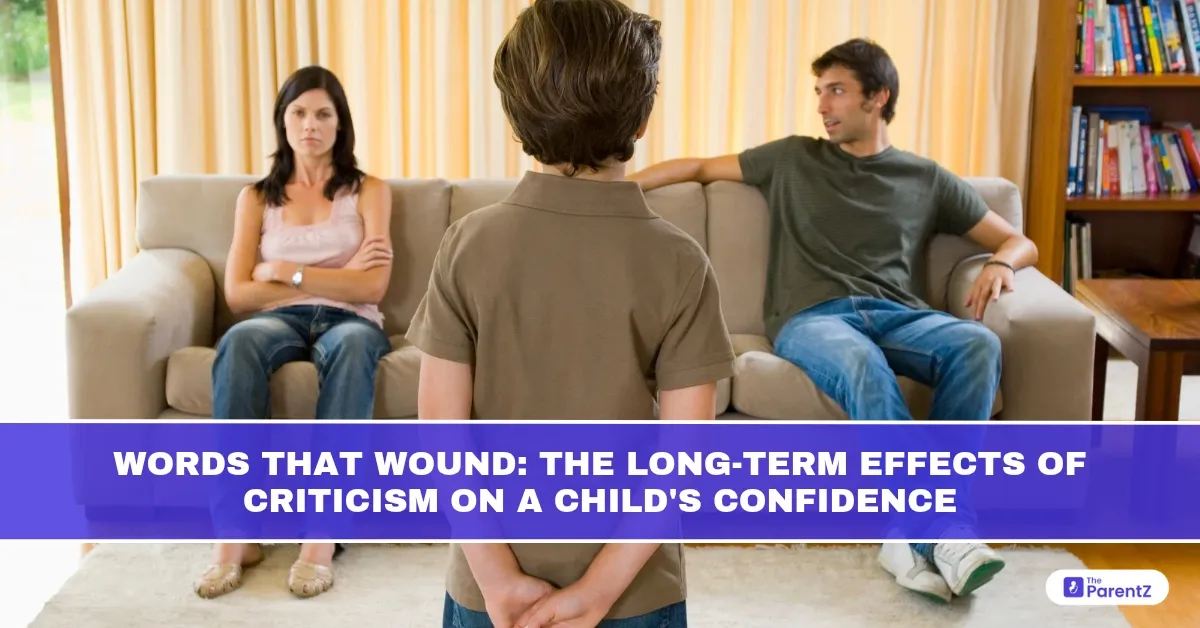Your words have power. They always have. They always will.
As parents, caregivers, and adults in a child's life, what you say matters more than you might realize. The casual comment about their appearance, the frustrated remark about their school performance, the comparison to their sibling or another child—these aren't just fleeting moments that disappear when the conversation ends.
They stick. They burrow deep. They become the voice in your child's head.
The Wounds That Form
Children are still forming their self-image. Unlike adults with years of experience and perspective, they lack the emotional tools to filter criticism. When you tell a child they're "always so messy" or "never focused," they don't hear this as feedback on a specific action. They hear it as a definition of who they are.
These wounds form through repetition, through tone, through facial expressions that convey disappointment. They form when criticism becomes the primary language of your relationship with your child. They form when your child begins to believe that your love and acceptance are conditional on their performance, appearance, or behavior.
A child criticized for their creativity begins to hide their imagination. A child mocked for their sensitivity learns to suppress their emotions. A child constantly compared to others loses sight of their unique strengths.
How Deep These Wounds Run
The research is painfully clear: childhood criticism doesn't just hurt in the moment—it reshapes the developing brain. Children who face consistent criticism show higher levels of anxiety, depression, and negative self-talk well into adulthood.
These aren't minor scratches that heal overnight. These are deep gashes in a child's sense of self-worth that can take decades to repair, if they ever fully heal.
Your child, who's told they're "too loud," might spend the rest of their life afraid to speak up in meetings. Your child, who's criticized for their athletic ability, might avoid physical activity well into adulthood. Your child, who's mocked for their academic struggles, might believe they're "just not smart" and stop trying altogether.
The wounds run as deep as identity itself.
What Your Criticism Actually Does
When you repeatedly criticize your child, here's what happens beneath the surface:
- Trust erodes. Children begin to see you as a source of pain rather than comfort.
- Self-doubt becomes default. Before trying something new, their first thought becomes "I'll probably fail."
- Perfectionism takes root. They believe anything less than perfect is unacceptable.
- Emotional withdrawal follows. To protect themselves, they stop sharing their dreams, fears, and authentic selves.
- Relationship patterns form. They learn to expect criticism from all relationships and may either become people pleasers or avoid close connections entirely.
That child who seems "fine" might be carrying wounds you can't see. That teenager who dismisses your words might be adding each criticism to a painful internal narrative. That adult child who keeps you at arm's length might be protecting themselves from words that have hurt too many times before.
Criticism vs. Guidance: The Critical Difference
Not all feedback is harmful. Children need guidance to grow. But there's a world of difference between "You're so lazy" and "I notice you're having trouble getting started on your homework. What's making it difficult today?"
Healthy guidance:
- Addresses specific behaviors, not character
- Offers solutions and support
- Acknowledges effort and progress
- Comes from a place of compassion, not frustration
- Makes your child feel capable, not defective
Harmful criticism:
- Uses absolutes ("always," "never")
- Attacks who they are, not what they did
- Compares them unfavorably to others
- Comes from your own triggered emotions
- Leaves them feeling hopeless about change
Hearing Your Child's Pain
Many parents don't realize the damage being done until it's severe. Your child may not have the words to tell you how your criticism affects them. Instead, watch for:
- Apologizing excessively
- Giving up quickly on challenges
- Becoming defensive or shutting down when given any feedback
- Negative self-talk ("I'm stupid," "Nobody likes me")
- Fear of trying new things
- People-pleasing behaviors
- Hiding mistakes or lying to avoid criticism
These aren't behavioral problems to criticize further—they're smoke signals from wounds already burning.
Breaking the Cycle
If you're reading this and recognizing yourself, it's not too late. Most parents who criticize harshly were criticized harshly themselves. The cycle can stop with you.
Start by acknowledging the pain your words may have caused. Even a simple "I realize I've been too critical, and I'm working on changing that" can begin the healing.
Replace criticism with curiosity. Instead of reacting to behaviors you don't understand, get curious about what's driving them.
Look for what's right before pointing out what's wrong. Make sure your child hears five positive observations for every correction.
And perhaps most importantly, work on healing your own wounds. The criticism you received as a child may be speaking through you now.
Conclusion
Your child will face plenty of criticism in the world. They'll have teachers, peers, bosses, and strangers who judge them harshly. Don't let that harsh voice take root in your home.
Home should be where they learn their worth isn't tied to their performance. Where they know they're loved completely, not conditionally. Where they can fail safely and try again.
Your words can wound or heal. They can crush confidence or nurture it. They can define limits or expand possibilities.
Choose carefully. Your child's inner voice is listening, recording, and believing.
And that voice will echo long after your words have been spoken.






Be the first one to comment on this story.